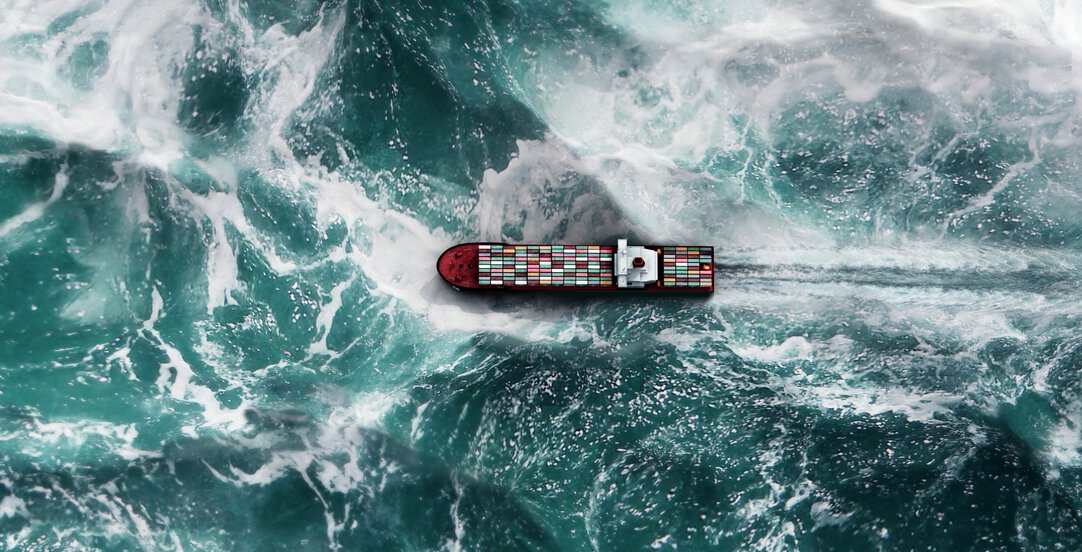FuelEU Maritime Pooling – A new commercial opportunity for shipping companies?

The FuelEU Maritime Regulation introduces a voluntary pooling mechanism. If shipping companies choose to use the pooling mechanism, they may effectively use the over-performance of one ship to compensate for the under-performance of another ship. This could present new commercial opportunities for shipping companies.
Lesetid 5 minutter
Regulation (EU) 2023/1805 on the use of renewable and low-carbon fuels in maritime transport (“FuelEU Maritime Regulation”) is aimed at accelerating the decarbonisation of the maritime industry. With certain exceptions, it will apply to all ships over 5000 gross tons calling at EU ports from 1 January 2025, and will require that greenhouse gas (GHG) emissions from these ships are reduced in accordance with the following sliding scale:
- 2% from 1 January 2025
- 6% from 1 January 2030
- 14.5% from 1 January 2035
- 31% from 1 January 2040
- 62% from 1 January 2045
- 80% from 1 January 2050
Rather than dictating the type of fuels to be used by the shipping industry, the FuelEU Maritime Regulation requires that the yearly average intensity of the energy used on board ships does not exceed a specific GHG intensity limit. The GHG intensity limit is calculated from a reference value of 91.16 grams of CO2 equivalent per MJ. This reference value will be reduced by the same percentages set out above i.e. with the aim of achieving an 80% reduction by 2050.
In broad terms, if a ship’s yearly average GHG intensity of the energy used on board is below the applicable intensity limit, this ship will have a positive compliance balance, whilst a ship with a yearly average GHG intensity exceeding the applicable intensity limit will have a negative compliance balance. Compliance with the GHG intensity limit will normally be calculated based on each individual ship. However, according to Article 21 of the FuelEU Maritime Regulation, the compliance balances of two or more ships may alternatively be “pooled” together.
Brief overview of the FuelEU Maritime pooling-rules
If a shipping company wishes to enter its ships into a “FuelEU Maritime Pool”, the shipping company must register its intention to do so in the FuelEU database. The company must also register the allocation of the total pool compliance balance to each individual ship in the pool. Additionally, it must register its choice of a verifier who shall be responsible for verifying the allocation between the ships.
The above means that it is still necessary to specify (or allocate) compliance balances for each ship in the pool. Reporting and verification must also still be done for each individual ship. However, the benefit of the FuelEU Maritime Pooling-mechanism, is that the “total pool compliance balance” may be allocated between the ships participating in the pool. Consequently, it is possible to allocate a lower compliance balance to ship A and a higher compliance balance to ship B, meaning that the over-performance of a ship may be used to compensate for the under-performance of another ship.
In order for a FuelEU Maritime Pool to be valid, the sum of the compliance balances of all the ships included in the pool (“the total pooled compliance”) must be positive. Furthermore, for the pool to be valid, any ship within the pool which had a compliance deficit (ships which are under-performing) must not have a higher compliance deficit after the allocation of the pooled compliance, and any ship within the pool which had a compliance surplus (ships that are over-performing) must not have a compliance deficit after the allocation of the pooled compliance.
When considering whether to participate in a FuelEU Maritime Pool, shipping companies must take into consideration that the rules in the FuelEU Maritime Regulation on borrowing of advance compliance surpluses will not be available for ships participating in a pool. Instead, shipping companies participating in a pool must rely on the total pool compliance balance and its allocation. However, if the total pool compliance balance results in a compliance surplus for an individual ship, this surplus may still be “banked” and used in subsequent reporting periods in the same manner as for ships not participating in a pool.
There are no limitations on the number of ships which may be included in a single pool, hence, a shipping company may choose to include all of its ships in a single FuelEU Maritime Pool. The FuelEU Maritime Regulation also allows for pooling between two or more shipping companies, which enables different shipping companies to cooperate and effectively have a single FuelEU Maritime Pool for two or more fleets of ships. However, even though the FuelEU Maritime Regulation allows for different ways to pool ships, the same ship may not be entered into more than one pool at any given time.
Considerations and potential Consequences
The GHG intensity limits will apply from 1 January 2025. It remains to be seen what effect the rules will have and whether shipping companies will use the pooling-mechanism. However, shipping companies should prepare for the full implementation of the FuelEU Maritime Regulation and consider the various possibilities it offers.
One aspect which should be taken into account, is that the FuelEU Maritime Pooling-mechanism may represent a new commercial opportunity for shipping companies. A shipping company with one or more ships with low GHG intensity in the energy used, can offer to pool these over-performing ships together with under-performing ships. If this is done, the under-performing ships could still be compliant, and would avoid being subject to sanctions under the FuelEU Maritime Regulation. This mechanism could therefore present new commercial opportunities – and additional commercial value – for over-performing ships.
The commercial aspect is, however, only one of the aspects that need to be taken into account. If a pool is established, the participants also need to agree on specific rules for the pool, hereunder targets and consequences if the actual performance deviates from the targets. Competition law matters could also be relevant to consider, in particular since the pooling-mechanism may require that information is shared between the participants. These matters will be particularly important if the pool consists of ships from different shipping companies.

